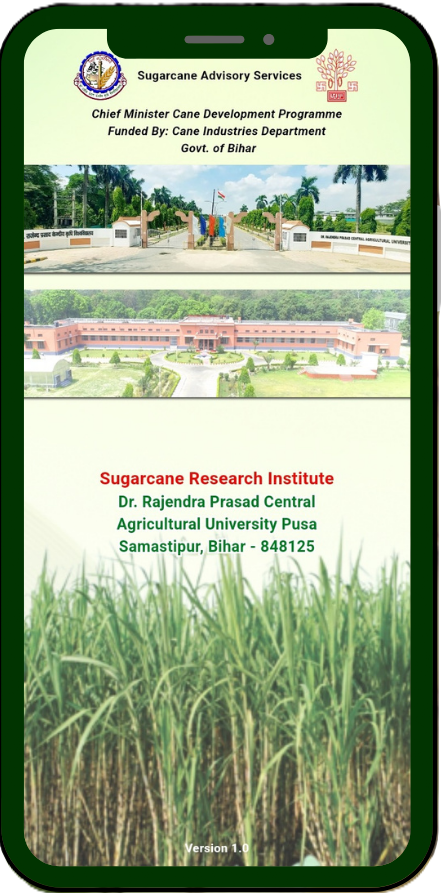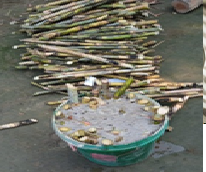
Cane Advisory Services
Sugarcane Research Institute
Dr. Rajendra Prasad Central Agricultural University
Pusa, Samastipur – 848 125, Bihar, India


Concept & Principles of Natural Farming: Natural Farming is a chemical-free traditional farming method, it is considered as an agro-ecology based diversified farming system which integrates crops, trees, and livestock with functional biodiversity-NitiAyog
Need of Natural Farming
The impact of organic sources on farming is age old wisdom that is well documented in ancient Indian scriptures like the Rig Veda. Organic sources are life of soil and it negligence can cause serious damage to soil fertility, soil health. Organic inputs have preserved the soil health in good condition requiring congenial plant growth and it performs distinct soil functions. The introduction of high yielding varieties, intensive cultivation and mechanization leads to dependence on alternative nutrient source i.e. chemical fertilizer. To enhance the soil fertility and soil health, one has to follow the organic sources which help in enhancing the efficiency and thereby reducing the use of synthetic fertilizers. Organic inputs enrich soil properties by enhancing the organic matter, nutrient content and microbial activity of soil, and thus help in increasing the crop growth and yield.
• The university funded project has been sanctioned for the demonstration of the product. The demonstration project under different sugar factory area will be conducted for the evaluation of product under University Funded Project.
Natural input
• Freely available resources in nature
• Non toxic production
Low input farming
• No use of chemical fertilizer
• Promotes natural catalyst of biological activity in the soil and natural protection from disease.
Mulching
• Soil protection
• Create conductive environment for biological process in soil
Multi-cropping
• Minimize the risk of failure
• Continuity of income source
Components of natural farming:
• Beejamrita: The process includes treatment of seed using cow dung, urine and lime based formulations.
• Jeevamrita: The process enhances the fertility of soil using cow dung, flour of pulses, and jaggery concoction.
• Whapasa: The process involves activating earthworm in the order to create water vapors condensation.
• Plant protection: The process involves spraying of biological concoctions which prevent pest, disease and weed problems and protect the plant and improve their soil fertility.
Formulation of inputs for natural farming
• Jeevamrita: 200 L water + 10 kg cow dung+ 10 L cow urine + 2 kg jaggery + 2 kg pulse flour @ 1000L/ha with irrigation water.
• Beejamrita: 5kg Cow dung + 5 L cow urine + 20 L water + 50g Lime used for seed treatment.
• Ghan-jeevamrita: 100Kg local cow dung + 2 kg jaggery + 2 kg Pulses flour @ 1000kg/ha as basal dose.
• Acchadan/Mulching: Sugarcane trash will be used after planting @ 5 t/ha.
• Ikhamrita:5kg Cow dung + 2L Fermented Cane Juice + 500 g jaggery + +100g Lime + 1Kg Rhizosphere garden soil +25 L water used for Sett treatment
Natural Plant Protection measures sprayed when required
• Neemastra- 100 L water + 5 L cow urine + 5 kg cow dung + 5 kg neem leaves @ 500 L/ha
• Brahmastra-10 L cow urine +3 kg neem leaves /2kg Karanj leaves @ 500 L/ha
• Agniastra- 100 L water + 10 L cow urine + 1kg Tobacco + 500 gm green chilli + 500 gm garlic @ 500 L/ha
